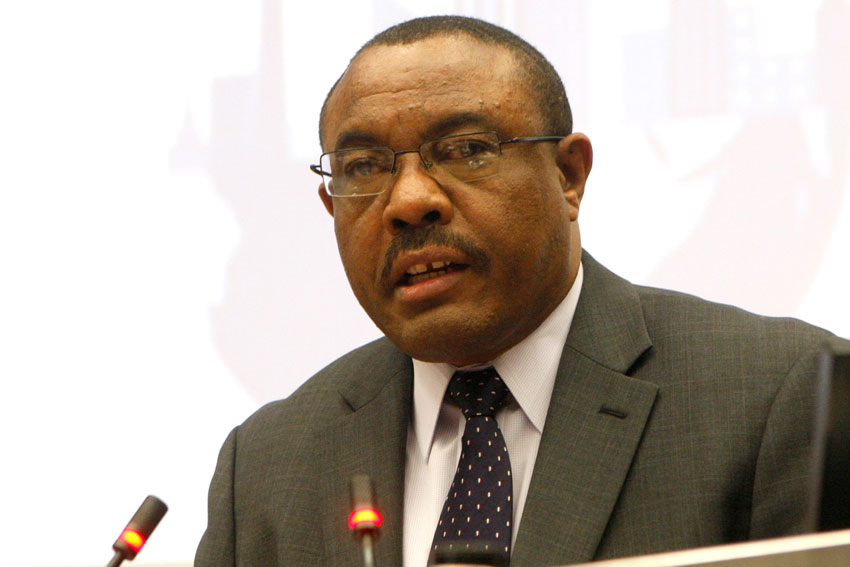Political leaders from Ethiopia, Guyana and Pakistan discuss their expectations of COP21 with The Worldfolio and what other nations can learn from their own countries’ efforts toward CO2 emission reduction and environmental protection.

Hailemariam Desalegn, Prime Minister of Ethiopia
When it comes to global warming and climate change, we have to understand this is not about theorists talking; it has become a reality. And if we continue at this pace, it means we are going to disappear from the globe in the coming years – in only one generation! Ethiopia wants to be a responsible global citizen in this regard, even though our contribution is minimal to global greenhouse emissions and the impact of our contribution is very small. But we have to showcase that if a country like Ethiopia, which is a less developed country, can contribute this much, then how much can the big countries, like the United States, Europe, China, Mexico, India and Brazil contribute? So we are urging the global community to see the reality on the ground and that if global warming goes up 1.5ºC, Africa is going to suffer.
Recently, we have been drought stricken in Ethiopia because of El Niño and it is plain to see that even though governments are trying their best to improve these things, there is a limit, because this is a global impact that individual governments can’t face by themselves. We need to take climate change seriously. I am glad some countries – like the United States, China and Brazil – are now showing they are willing to improve their commitment. But still, the commitment is not up to the expectation of the global community.
This issue is no joke: the ice is melting in the Arctic, the ocean levels are rising, the droughts are visible in Australia and California; people are suffering. This has to be taken care of. Climate change has become an existential issue for all of us and every one of us should feel responsible. In Ethiopia we will continue to champion and to speak in one voice with our African brothers and sisters to showcase that Africa is the most vulnerable continent as far as climate change is concerned, and that the global community has a responsibility to act and act quickly.

David A. Granger, President Of Guyana (Photo: UN Women/Sarah Stacke ©CC BY-NC-ND 2.0)
David A. Granger, President Of Guyana
Guyana’s example shows other countries can learn prudence, because we have been very prudent in the exploitation of our resources and the preservation of our forests; we have worked within the limits. We have good relations with Norway and we are quite aware of the dangers of deforestation and environmental damage. We have an excellent tourism project in terms of ecology. We have some of the most fantastic fauna in the world. The largest eagle in the world comes from Guyana’s Amazon area, as well as the largest freshwater fish, the largest anteater, the largest rodent, and the largest river otter. Along with other countries in the Amazon, like Brazil, we score very highly on our ecology. I will take that message to COP21.
Also, the preservation of what we call part of the lungs of the Earth, the prudent management of our forest resources, of our trees, and relations we have developed with our indigenous population, which still largely inhabit the hinterland. It is a message from which the world can benefit.
We have also created the Iwokrama rainforest in the heart of Guyana. It was endorsed by all 53 members of the Commonwealth of Nations a quarter of a century ago. It is still an important element in teaching the world some environmental practices. It is a model. It is like a laboratory and we would like other countries to come to Guyana to see that experiment. What we do in Iwokrama, how we can live with nature, how we can harvest forest products in a sustainable manner. That is our gift to the world and it’s also a message to COP21.

Shahid Khaqan Abbasi, Federal Minister for Petroleum & Natural Resources for Pakistan
Shahid Khaqan Abbasi, Federal Minister for Petroleum & Natural Resources for Pakistan
Pakistan is a very responsible country when it comes to the global environment. We are currently working on several major initiatives for oil replacement with gas, which is the cleanest and most efficient source of fossil energy. A large number, almost two-thirds, of the vehicles in Pakistan have converted to compressed natural gas (CNG), which will greatly contribute to the environment by decreasing petrol consumption.
Pakistan not only has one of the lowest carbon footprints per capita in the world, but it’s also determined to achieve even lower levels with a greater focus on solar and wind energy. We have put up one of the largest solar parks in the world in Bahawalpur and the wind potential is also being exploited with several wind power projects. Pakistan has over a 100,000 MW hydel potential; this source of power is now being pursued with several large dam and run of the river projects under construction in addition to smaller hydel projects.
I believe every source of energy has its limitations, both from a commercial viability and environmental point of view; the responsibility of the decision-makers is to create an optimal energy mix using an integrated approach.
0 COMMENTS